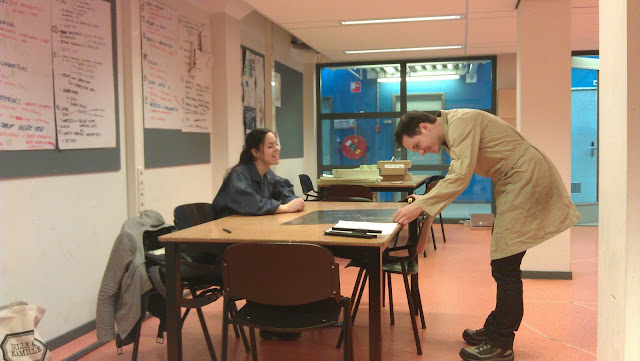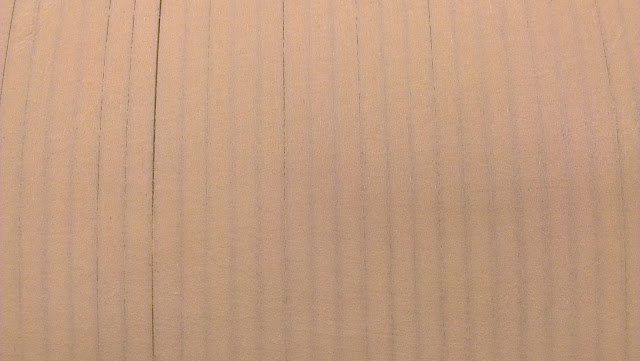The ground
part deals with a lot of load. Therefore this part is strengthened with steel
beams. Before welding all parts together, the parts need to be cut with the
proper size. Holes are made so the tubes can go through. While everything is
cut, bended, etc. all parts could be welded. We welded in teams of two. One
welder and an assistant.
vrijdag 31 mei 2013
woensdag 29 mei 2013
MOLD - SANDING
After cutting
all plates into the right shape and pinning them on five rods, it is time to
sand the mold. We used a sanding machine and started sanding the mold. In teams
we started to sand the mold to get the mold even. The mold is almost done;
however between some plates a gap appeared. We need to remove those gaps, by putting
the plates nearer to each other. This can be done with a hammer.
If the
whole mold is finished, it can go to Baas & Bloemhof to shape the HIMACS.
HIMACS HEAT RESISTANCE
While making
the mold, we found out that the mold should be as precise as possible. The
HIMACS will be produced by means of thermo forming. After the process the HIMACS
will be very stiff and we were not sure if we could reform it by hand. We
tested with a small piece of HIMACS if it is possible to correct small
adjustment. We used a paint stripper and man power to bend the HIMACS. After a
few minutes of heating the material you could bend it.
Conclusion:
Adjustment /corrections can be done of the shape is not precise enough.
maandag 27 mei 2013
PROTOTYPING PLAN - STEP 1
Before
making the prototype, a production plan is made. After the procurement meeting
it was discussed that we start with making the small corner and a straight
piece. This we call step 1. If there is time left we will go on by making the
rest of the prototype. If there is no time left to make everything out of
HIMACS, we will make the prototype of a similar looking material, which will be
easier to produce with. This way the users can experience the whole LUMO,
instead of a little part. The pictures below show the whole plan.
vrijdag 24 mei 2013
MOLD
From this
moment forward we are getting started on making the prototype. The plan was
already made and approved. Now it is time to make the mold, which will be used
for thermoforming the HIMACS plates. First we drew, with a stencil, the shape
onto the MDF 9mm sheets. By hand all shapes were cut with an electric hand saw.
After cutting all shapes, the shapes were getting marked with 5 dots. These
dots were marking to drill holes in. We used an 8.5mm drill to make the holes. Through
these holes five rods were placed to keep all shapes together to get a sturdy
and stiff mold. At both sides, the shape holds itself together with a ring and
a bolt.
The pictures
below show the previous mentioned steps. By doing it in an assembly line setup,
making the mold was quite efficient.

































